constituent assembly of india debates (proceedings)- volume vii
constituent assembly of india debates (proceedings)- volume vii
constituent assembly of india debates (proceedings)- volume vii
You also want an ePaper? Increase the reach of your titles
YUMPU automatically turns print PDFs into web optimized ePapers that Google loves.
to 1946-47are set out in Appendix II. In considering the working <strong>of</strong> the existing arrangements during the<br />
last decade, the most important point to note is that war broke out soon after the Government <strong>of</strong> India<br />
Act, 1935, came into operation.<br />
18. During the war, all Provinces except Bengal and Assam had surplus budgets. Revenue receipts<br />
increased several times, mainly on account <strong>of</strong> wartime conditions and also because the Provinces levied a<br />
number <strong>of</strong> new taxes and increased the rates <strong>of</strong> existing ones; there were remarkable increases in<br />
receipts under Provincial, i.e., Liquor and Drugs, Excises, and in the Provincial share <strong>of</strong> Income-tax. Most<br />
Provinces were under Section 93 administration. All development work was stopped. The Provinces are<br />
now faced with a heavy program me <strong>of</strong> expenditure without any corresponding increase in revenue. On<br />
the contrary, even apart from voluntary abandonment <strong>of</strong> revenue as in the case <strong>of</strong> Liquor Excises, the<br />
revenue is likely to go down much below wartime levels. Land revenue, both in the permanently and<br />
temporarily settled provinces, is not likely to expand. State purchases <strong>of</strong> zamindaries will not bring any<br />
return for years to come. In ryotwari Provinces, remissions are likely to be more liberal than before, and<br />
there is thus little prospect <strong>of</strong> an increase in land revenue. Receipts from stamps and registration fees<br />
are not likely to increase much, while forest revenue will perhaps dwindle on account <strong>of</strong> large scale<br />
felling during the war. Receipts from sales tax, entertainment tax may not fall, thought they will be<br />
below the war-time peak for some time to come.<br />
19. During the war and after, most <strong>of</strong> the Provincial Governments have practically exhausted the<br />
entire field <strong>of</strong> taxation reserved for them. Moreover, Provincial Governments have to share the Provincial<br />
field with Local Bodies, and on that account too, need adequate resources. A substantial transfer <strong>of</strong><br />
revenues from the Center to the Provinces, therefore, seems inevitable, if essential and overdue<br />
programmes <strong>of</strong> social service and economic development have to be undertaken.<br />
20. At this stage, we would refer to the adoption, by most Provincial Governments, <strong>of</strong> a prohibitionist<br />
policy; and <strong>of</strong> the inevitable loss <strong>of</strong> substantial revenue by all <strong>of</strong> them. Obviously, it is for the provinces<br />
to find alternative provincial resources from which to recoup the loss; and incase, it any case, it would<br />
not be practicable for provinces to expect sufficient assistance from the Center for this purpose, at any<br />
rate for many years. The point that we wish to emphasise is that it will be for the provincial Government<br />
to balance the urgency <strong>of</strong> schemes <strong>of</strong> development against the advisability <strong>of</strong> social reforms like<br />
prohibition, and that in any case, they must not embark on schemes, whether <strong>of</strong> reform or development,<br />
depending merely on the possibility <strong>of</strong> obtaining assistance automatically from the Centre.<br />
21. To turn now to the Centre, it has been working on deficit budgets. The large surpluses that were<br />
expected sometime ago have not been, and are not likely to be realised, mainly because <strong>of</strong> the food<br />
shortage, the refugee problem and other causes arising out <strong>of</strong> the partition <strong>of</strong> the country, particularly,<br />
continued heavy expenditure on Defence. These are, however, temporary problems, and we consider<br />
that the financial position <strong>of</strong> the Centre is essentially sound. As these temporary problems are solved,<br />
the budgetary position <strong>of</strong> the Centre will necessarily get better. There is scope for improvement in the<br />
administration <strong>of</strong> Central taxes, and particularly <strong>of</strong> taxes on income. In respect <strong>of</strong> taxes on income, it<br />
should be possible for the Centre not only to collect more in future in the ordinary course every year, but<br />
to secure for the exchequer, by legislative changes, if necessary, the large sums that are believed to<br />
have been successfully kept back from the Government in recent years. We do not, however, expect any<br />
appreciable change under Customs and Excise; and we do not expect Railway contributions on anything<br />
like the scale during the war. Even after the temporary problems referred to above have been solved,<br />
expenditure on Defence and Foreign Affairs would still be substantial. The Defence Services will probably<br />
be reorganised and re-equipped, and it is not possible to foresee what would be the scale <strong>of</strong> expenditure<br />
for properly equipped defence services even on a peace-time basis. There is little prospect on the other<br />
hand <strong>of</strong> reduction in the service <strong>of</strong> the national debt but there is, however, scope for reduction in the<br />
existing civil expenditure.


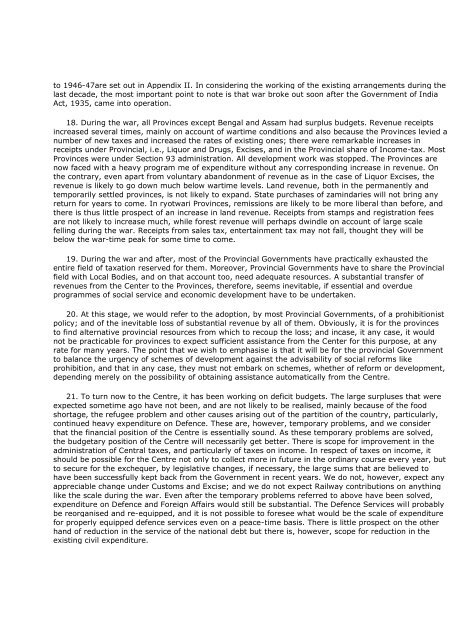
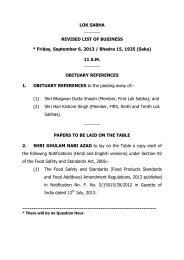
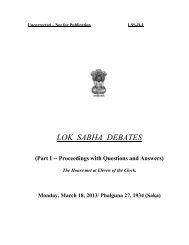
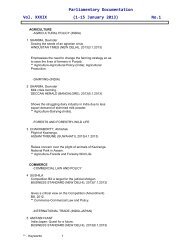
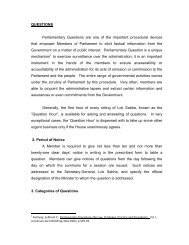
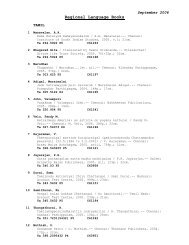
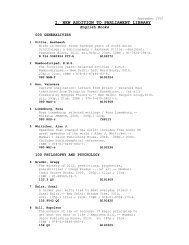
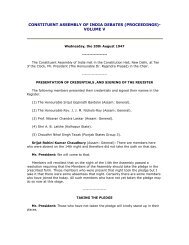
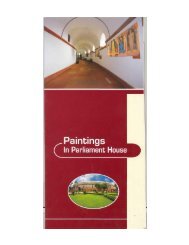
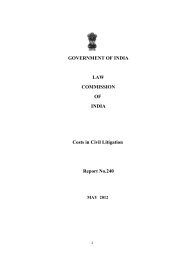
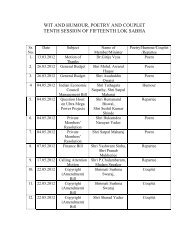
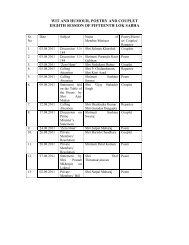

![gÉÉŌ A.]ÉŌ. xÉÉxÉÉ](https://img.yumpu.com/8015720/1/190x245/geeo-aeo-xeexee.jpg?quality=85)
